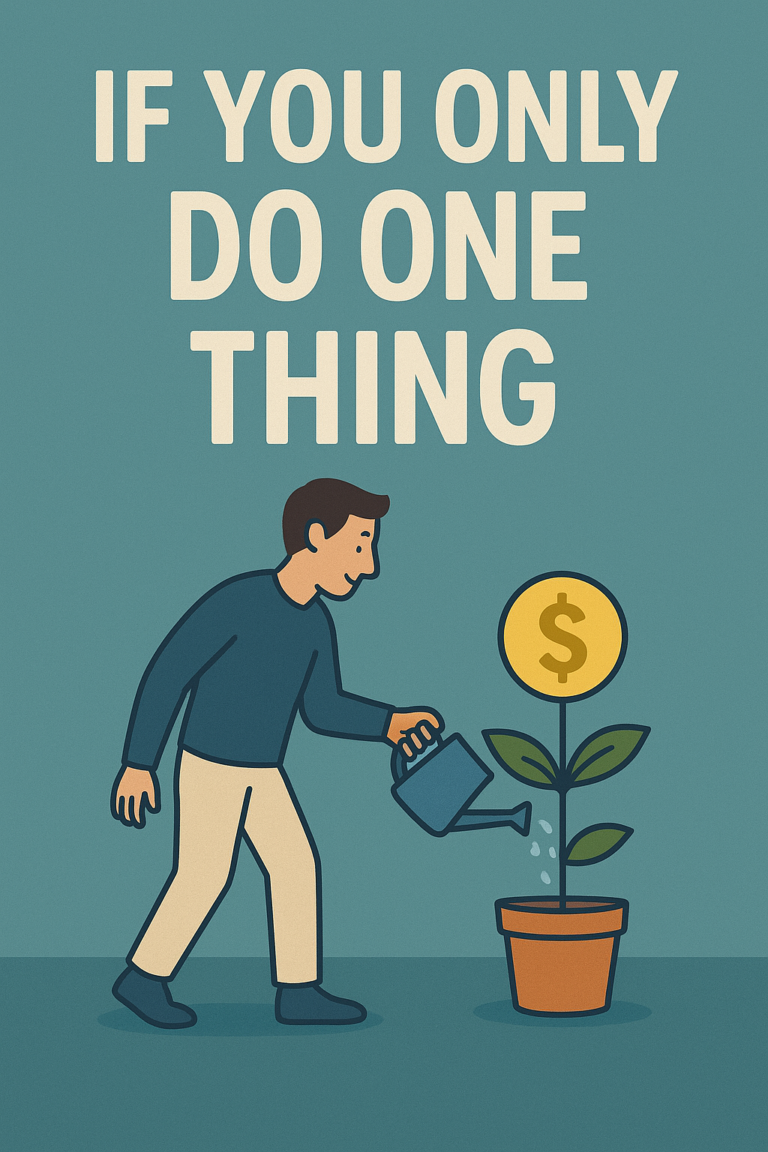Average Net Worth by Age 30 (And How to Beat It)
Wondering where you stand financially?
Let’s talk about the average net worth by age 30 — and, more importantly, how you can blow past it.
In this guide, we’ll cover:
- What the numbers say
- Why net worth matters
- How you can build wealth in your 20s and early 30s
What Is Net Worth?
Before we dive in, quick refresher:
Net worth = what you own – what you owe.
Example:
- Assets: $50,000 in savings + $10,000 car
- Debts: $20,000 student loans
- Net Worth = $60,000 – $20,000 = $40,000
Simple — but powerful.
Tracking your net worth is the clearest way to measure real financial progress.
What’s the Average Net Worth by Age 30?
Here’s what the Federal Reserve and other major surveys report:
| Age Group | Average Net Worth | Median Net Worth |
|---|---|---|
| Under 35 | ~$76,300 | ~$13,900 |
(Source: Federal Reserve Survey of Consumer Finances, 2022 data)
👉 Important:
- The average is much higher because a few rich people skew the numbers.
- The median — $13,900 — is a much more realistic benchmark for most 30-year-olds.
Bottom line:
- If you’re 30 and have a net worth above $14,000, you’re already doing better than half of your peers.
- If you’re pushing toward $76,000 or more, you’re way ahead.
How Much Net Worth Should You Aim for by 30?
Here’s a simple rule of thumb:
By age 30, try to have at least 1x your annual salary saved and invested.
Example:
- If you make $60,000/year → Target $60,000 net worth by 30
- If you make $80,000/year → Target $80,000 net worth by 30
This sets you up for early financial independence and options later.
Why Do So Many 30-Year-Olds Have Low Net Worth?
It’s not all bad habits.
Most people in their 20s and early 30s are:
- Paying off student loans
- Just starting their careers
- Saving up for houses or family expenses
It’s normal to start a little behind.
The key is catching up — and compounding your growth from here.
How to Build Your Net Worth Fast in Your 20s and 30s
1. Maximize Your Income Early
Your 20s are the best time to:
- Negotiate raises
- Switch jobs strategically
- Pick up side hustles
An extra $5,000–$10,000 a year in your 20s compounds into hundreds of thousands by retirement.
2. Invest Aggressively
Don’t just save — invest.
Even small amounts grow:
| Invested Monthly | Value in 10 Years (8% returns) |
|---|---|
| $100 | ~$18,300 |
| $500 | ~$91,500 |
| $1,000 | ~$183,000 |
Total Stock Market ETFs like VTI, SCHB, or ITOT are great beginner options.
3. Avoid Lifestyle Inflation
Big raises? Awesome.
New BMW? Not awesome (financially speaking).
The faster you increase your savings rate, the faster you grow net worth.
4. Kill High-Interest Debt
If you have credit card debt (20%+ interest), it’s an emergency.
Pay it off first — it’s the best guaranteed “investment” return you’ll ever get.
Example: Path to $100,000 Net Worth by 30
Let’s say you:
- Save and invest $1,000/month starting at age 22
- Earn an average of 8% returns
By age 30, you could have over $130,000 saved and invested — all by sticking to a basic plan.
No wild stock picks. No million-dollar salary.
Just steady, boring, automated investing.
What If You’re 30 and Behind?
First — no shame.
Most people don’t get serious about money until later.
Here’s your fast-track action plan:
- Know your net worth today (calculate it now)
- Cut unnecessary expenses (subscriptions, luxury items)
- Boost income (new job, side hustle, certifications)
- Invest every extra dollar automatically
- Stay consistent — even $100/month matters
Remember: Small changes now = big results later.
Final Thoughts: Average Net Worth by Age 30
- Median net worth at 30: ~$14,000
- Average net worth at 30: ~$76,000
- Target: 1x your annual salary or more
But here’s the truth:
Your direction matters more than your starting point.
Start building habits now — saving, investing, growing your income — and you’ll leave “average” behind faster than you think.
👉 Next step: Want to know the easiest investment to get started? Read this guide.

How I Invest My $200,000 Salary (Step-by-Step Breakdown)
I Make $200,000 a Year — Here’s How I Invest It I wasn’t always a high earner. My first job…
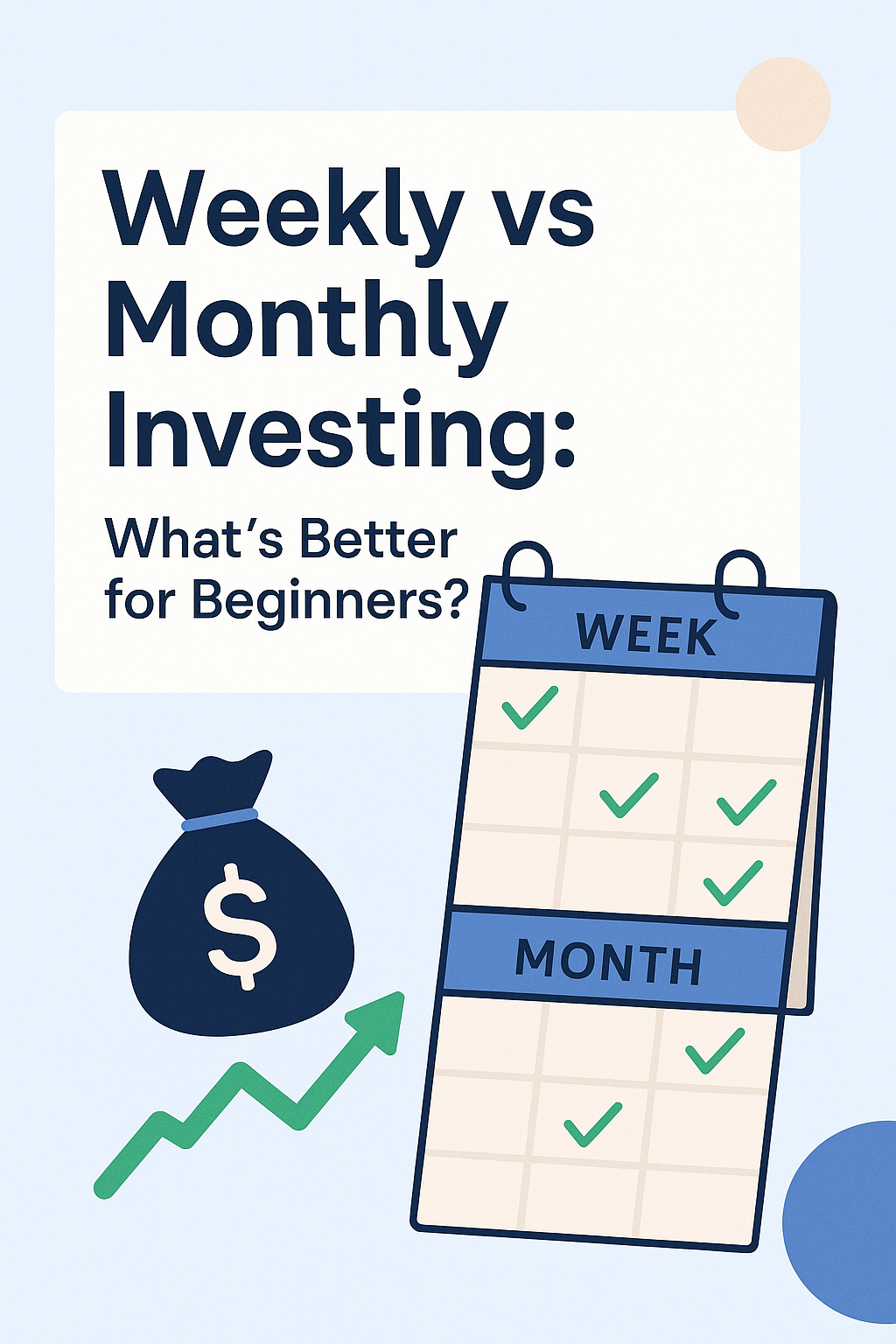
Weekly vs Monthly Investing: Which Is Better for Beginners?
If you’re wondering whether to invest weekly or monthly, you’re not alone.One of the most common beginner questions I get…
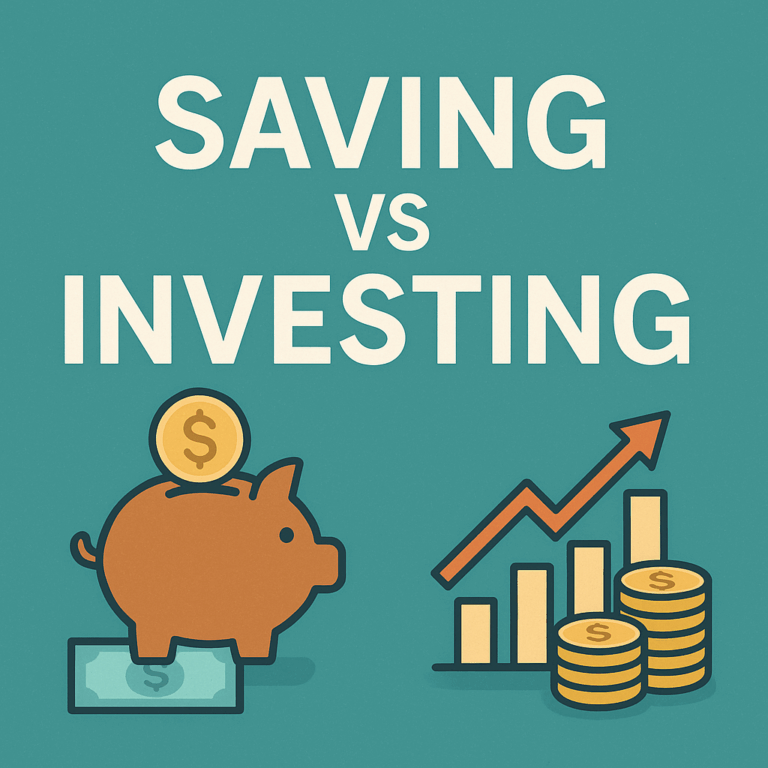
Saving vs Investing: What Should You Do First?
If you’re just getting started with money, you’ve probably asked this question: Should I save first, or start investing right…

What to Do With Your First $1,000
When I had my first $1,000 saved, I felt two things at once: proud…and stuck. I knew I should do something…
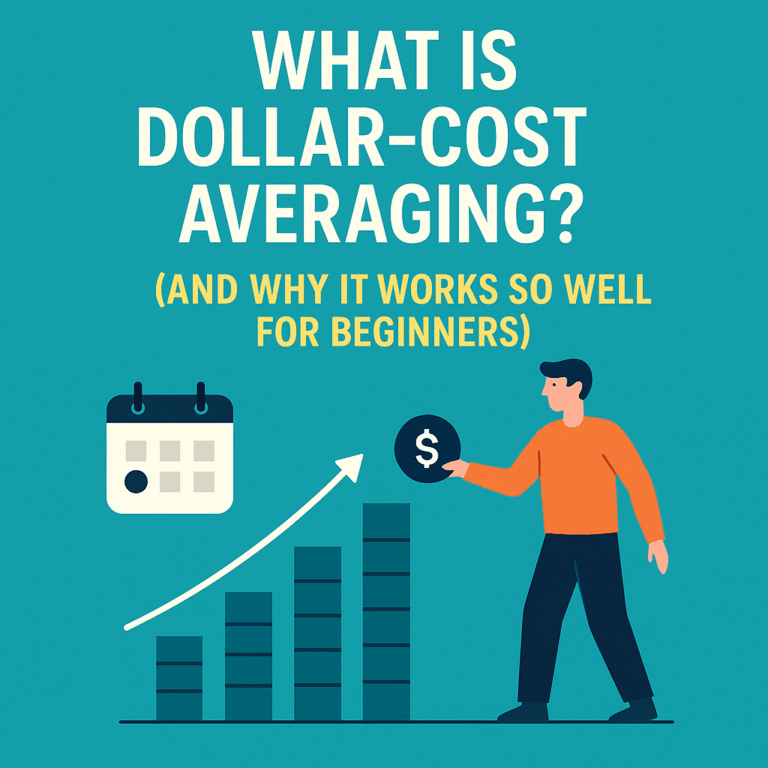
What Is Dollar-Cost Averaging? (And Why It Works So Well for Beginners)
We started investing in 2013, right after I landed my first “real” job — $15 an hour, entry-level. My wife…

How to Get Rich From Nothing (Even If You’re Broke Right Now)
I started with nothing. No inheritance. No stock tips. No trust fund. My parents didn’t leave me a dime, and…
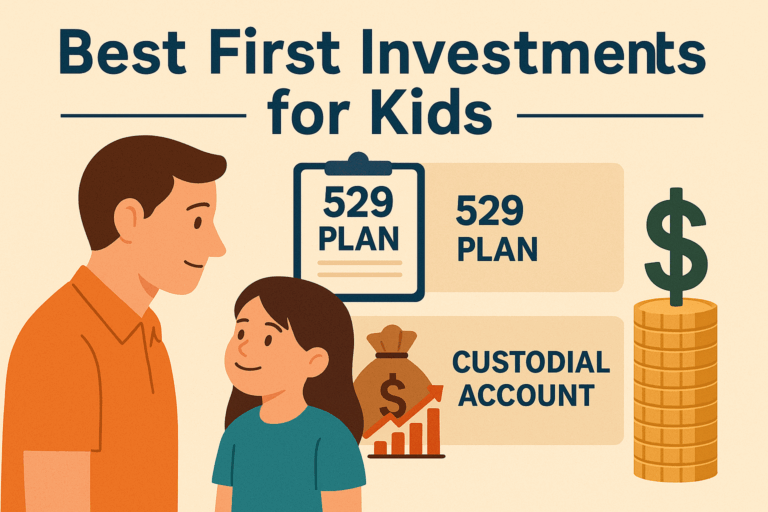
The Best First Investments for Kids (And How I’m Building Generational Wealth for My Daughter)
When I was growing up, no one handed me a roadmap to building wealth. My parents weren’t investors. They didn’t…
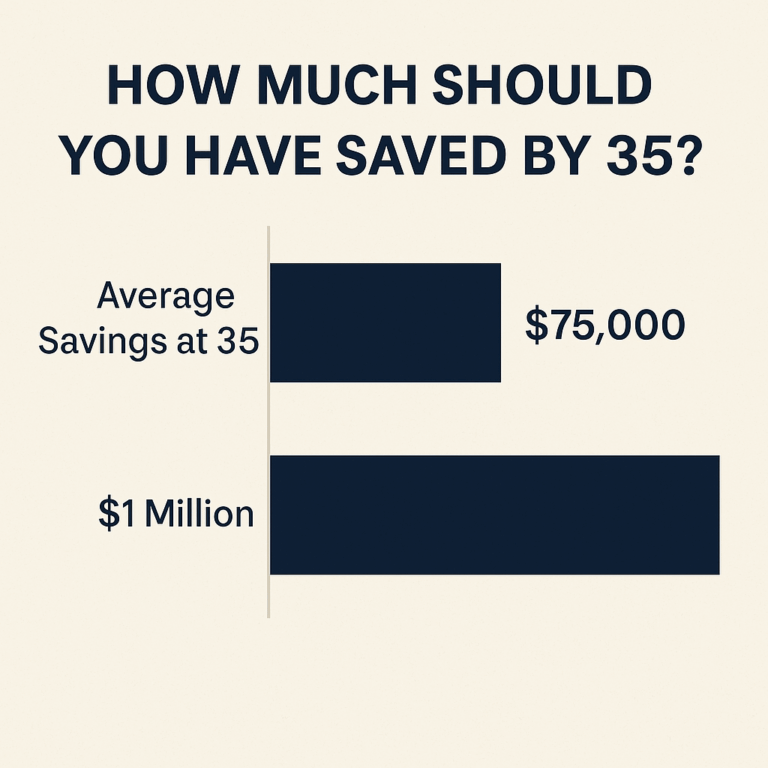
How Much Should You Save at 35? (Here’s What I Did)
The Short Answer: It Depends. But Let Me Tell You What Worked for Me. When I turned 35, I had…
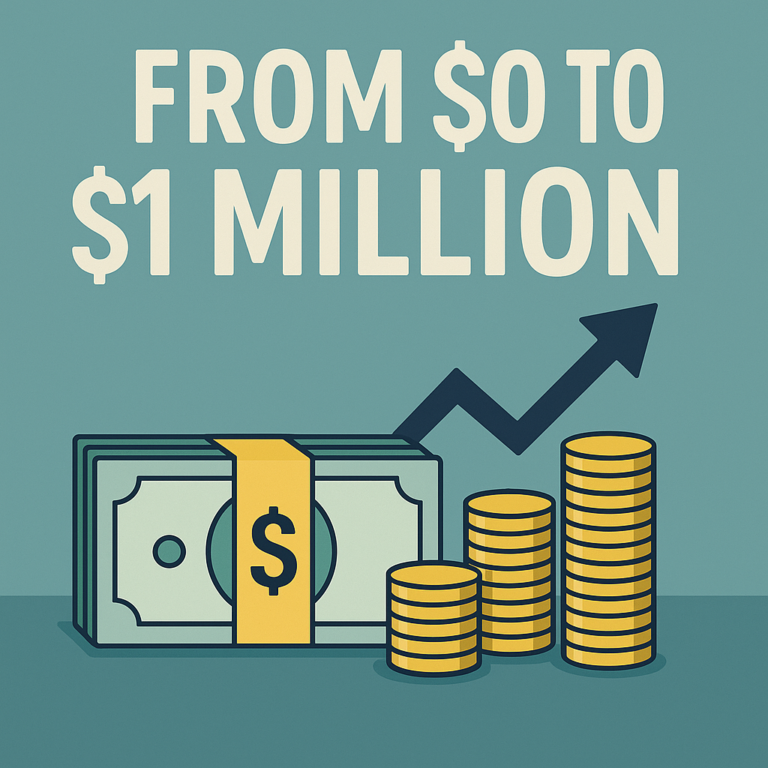
From $0 to $1 Million by 35: A Simple Wealth-Building Strategy
TL/DR: I worked hard to steadily increase my income over time until I could save half of it every month…
